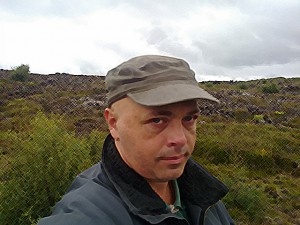Carl Gustav Jung was a pioneer of modern psychology. He was a contemporary of Sigmund Freud who began his pioneering work earlier but for a while they were great friends and collaborators.
 Freud was nineteen years older and had already made thoughtful and illuminating breakthroughs in exploring the human psyche when they met. Both of them made great progress in mapping the psyche - if one could use such words – but two great minds can rarely collaborate as pioneers for a long time. Except perhaps if they were of opposite genders.
Freud was nineteen years older and had already made thoughtful and illuminating breakthroughs in exploring the human psyche when they met. Both of them made great progress in mapping the psyche - if one could use such words – but two great minds can rarely collaborate as pioneers for a long time. Except perhaps if they were of opposite genders.
In much of my work you will see references to Jung and for good reason as his ideas and his example as a pioneer has inspired me greatly. In many ways Jung could even be considered a Prophet himself. For ancient measusres of monotheism proclaim that a prophet can be identified by what he holds dearest in all his work; which is God.
At first glance Jung cannot fit into this category for he abstained from organised religion and did not preach a particular faith, or so it might seem. Above all he considered himself to be a scientist and all his professional work is based on scientific approach. He was in fact very careful to keep his work as scientific as possible, particularly as he was aware of how far he was often outside the accepted views in the scientific community.
By accepted views I am referring to his great respect for illusions, mysticism, alchemy, and other borderline experiences to the world of the psyche. That part of our human experience is more or less shunned by the scientific community for reasons I will not get into hear, as you probably are aware of them.
People who knew Jung intimately have explained that when Jung was asked if he believed in God that he said “I don’t have to believe, I know”. Probably he was referring to “Self” or the psyche, and it makes sense to those who understand what Jung taught and believed.
Believed?
Jung placed the psyche above all else; it was dearest in all his work.In a certain sense one could say that to Jung the psyche was a god – for he saw the subconscious on many levels as a mystical being and in some respect a great influence – if not the only influence – on mystical experiences and realizations.
httpv://www.youtube.com/watch?v=FPGMWF7kU_8
The same is easy to see from the work of most monotheistic prophets; that none of them wished to form a particular religion at all. None of them wished to create a congregation of followers or form a secular organized form of religion. It is the very nature of God’s prophets to strive to inspire other people to develop their own spiritual integrity or search for answers.
Jung fits into this category easily.
There is also one aspect of Jung’s worldview, as he explained to Laurens Van Der Post; that if anyone would form a Jungism he would consider his lifework to be void and to have failed. This is also inherent in the messages of true prophets. They teach insight rather than a method.
I have participated in discussion groups on the Internet devoted to Jung and his work. I have also participated in discussion groups about the work of Marie-Louise Von Franz who was – in some respects – his most accomplished pupil.
In allf of these groups I have seen psychiatrists, psychologists, therapists and laymen, quoting Jung’s work often in much detail. I have seen many references to his concepts and use of archetypes and discussions about his books. I cannot emphasize enough how shocked I have been by almost all of them.
When discussing his ideas and inspiration almost no-one tolerates any deviation from what Jung wrote and discussed. There is no criticism allowed, no real discussion, only admiration and acceptance of his ideas is allowed. Almost no-one seems to see that the very nature of Jung’s work inspires creativity which by its very nature insists on deviation, digressing from the accepted truth.
If Jung would himself have worked in that way, the Jungism would never have been born. His priests know the price of all his words, but nothing about their value.
Take heed, a prophet is never a theologian. Because a prophet does not create a name for himself. His followers do. A theologian is a scientist of the old established thinking but a prophet explores new thinking. This might be difficult for many modern men and women to see for we know the old thinking, and we just like most people at any past modernity reject the new way of seeing.
Does this make sense to anyone?
